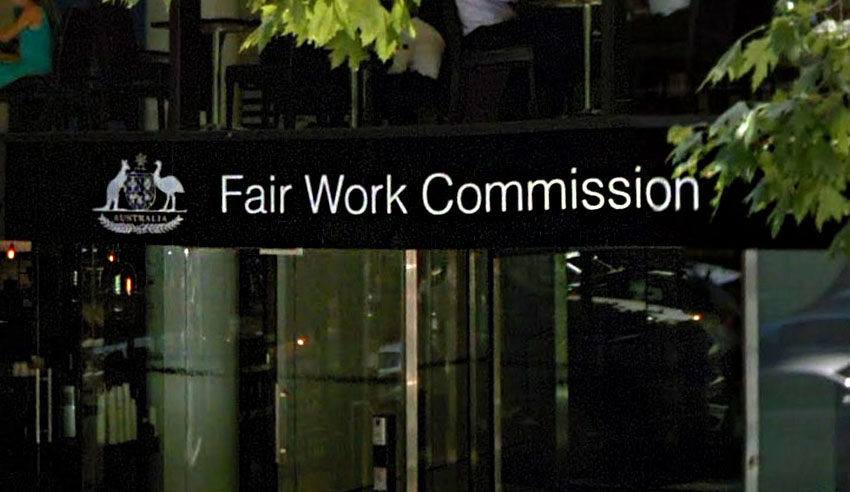In an exclusive in-depth analysis, Momentum Media’s Lawyers Weekly platform reached out to 20 law firms to gauge their reaction to new Fair Work Commission rules that will require them to record the hours undertaken by their most junior legal professionals.

New Fair Work Commission rules will require law firms to record the hours of their most junior lawyers.
The rules will come into effect in 2020 and Lawyers Weekly asked the affected firms whether or not they will go the extra mile in extending the measures to encompass all employees.
In late October 2019 it was reported that the rules – imposed by the Fair Work Commission and coming into effect next March – will see a group of 20 law firms record the overtime of its younger staff, requiring those firms to conduct annual pay reconciliations and advise their lawyers of the maximum hours they can work under salary before they are entitled to overtime or penalty rates.
“It is the responsibility of the employer to ensure the wellbeing of employees, including young lawyers, especially in times of pressure, and to make sure they are adequately remunerated and have the appropriate time off to compensate for additional hours,” said Law Society of NSW CEO Michael Tidball.
To better understand the next steps for firms in monitoring hours worked, Lawyers Weekly contacted all 20 of the firms who will be required to record staff hours: Arnold Bloch Leibler, Allen & Overy, Allens, Ashurst, Baker McKenzie, Clayton Utz, Corrs, Davies Collinson Cave, DLA Piper, Gadens, Gilbert + Tobin, Hall and Wilcox, Herbert Smith Freehills, King & Wood Mallesons, Lander & Rogers, Maddocks, MinterEllison, Norton Rose Fulbright, Piper Alderman and Russell Kennedy Lawyers.
Spokespeople for both Allens and Ashurst said they are in the process of ensuring they are meeting their new obligations under the Award, in time for March 2020.
A spokesperson for Clayton Utz said employee satisfaction will come from more than recognition for the hours worked, “although we recognise discretionary effort in different ways through our recognition program”.
“It’s about the work environment you create and what you have to offer as an employer. That might be the opportunity to do interesting and challenging work (including pro bono work), participate in professional development programs, volunteer in the community, participate in social or sporting activities, or get involved in networks and give voice to cultural diversity or LGBTI rights.”
DLA Piper Australian managing partner Amber Matthews provided the most comprehensive response, saying that the firm’s people are its most important asset, so ensuring they feel supported, valued and respected is her “utmost priority.”
“The Fair Work Commission’s decision on reporting requirements for annualised wage agreements applies to all our employees under the Legal Services Award. We are currently working through the required changes, ready for implementation when they come into effect,” she said.
“But monitoring working hours is just one part of a number of initiatives and policies we already have in place to ensure the health, safety and wellbeing of our employees. Increasing flexibility and agile working is a key focus for us. Our traditional ways of working are long-standing and hard to shift, designed in a time when societal norms and technology were very different. One of the things we’re currently focused on is embedding a culture of ad hoc flexibility and moving towards a more output-driven culture.
“We are committed to really delivering a shift in behaviour here, and it will no doubt help us attract and retain the best people. But we recognise the ongoing work required to continue to improve, and help champion similar change across our industry,” she concluded.
G+T said it would comply with the new requirements, but wouldn’t record hours outside of the prescribed requirements, citing administrative burdens.
“Gilbert + Tobin will comply with the new requirements. We will record all hours and times worked by the groups falling under the change in the Award – paralegals and graduate lawyers,” it said in a statement.
“We won’t record hours worked by others other than those required by the legislation, as it would be a huge administrative undertaking. It’s a workplace law and we need to comply. Time will tell in relation to employee satisfaction levels and we will continue to monitor these.”
Herbert Smith Freehills said they are currently reviewing the decision and current remuneration processes to ensure the firm is compliant by March 2020.
King Wood & Mallesons chief executive partner Berkeley Cox said the firm is working through implications and how to best implement the changes: “We will continue to ensure that our people are appropriately remunerated and comply with any requirements under the Award.
“We will continue to actively monitor and manage working hours of our people as part of ensuring our people are appropriately remunerated and as part of our overarching people strategy – which seeks to place sustainable working hours and rest and recovery at the centre of our operating model.”
Maddocks briefly responded, with CEO Michelle Dixon noting: “We have annualised wage arrangements in place for our lawyers and we are currently assessing the implications, if any, of the decision for us.”
Arnold Bloch Leibler, Baker McKenzie, Landers, Minters and Pipers all declined to comment.
At the time of filing this story, Allen & Overy, Corrs, Davies Collinson Cave, Gadens, Hall & Wilcox, NRF and Russell Kennedy had not responded to questioning.